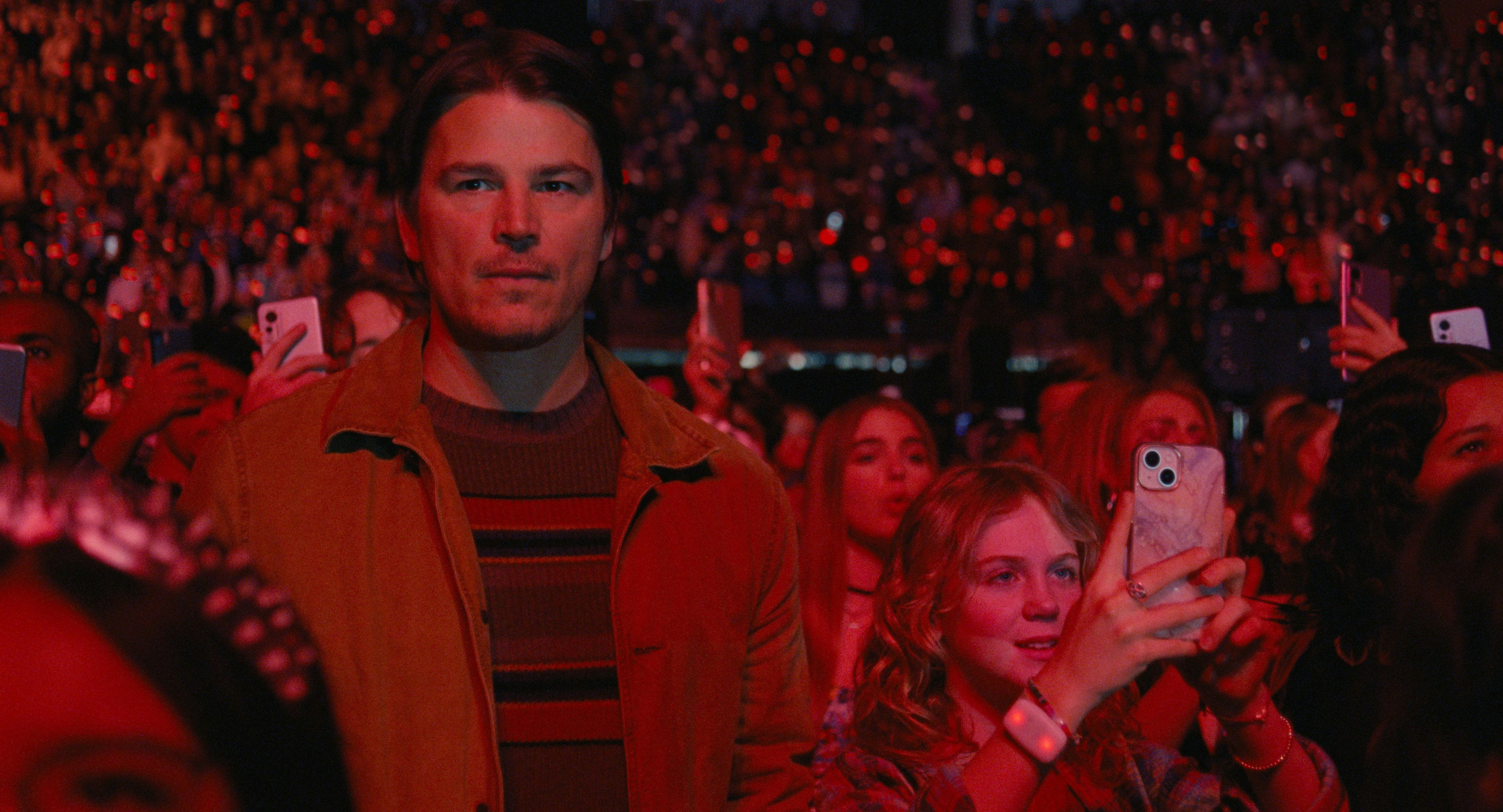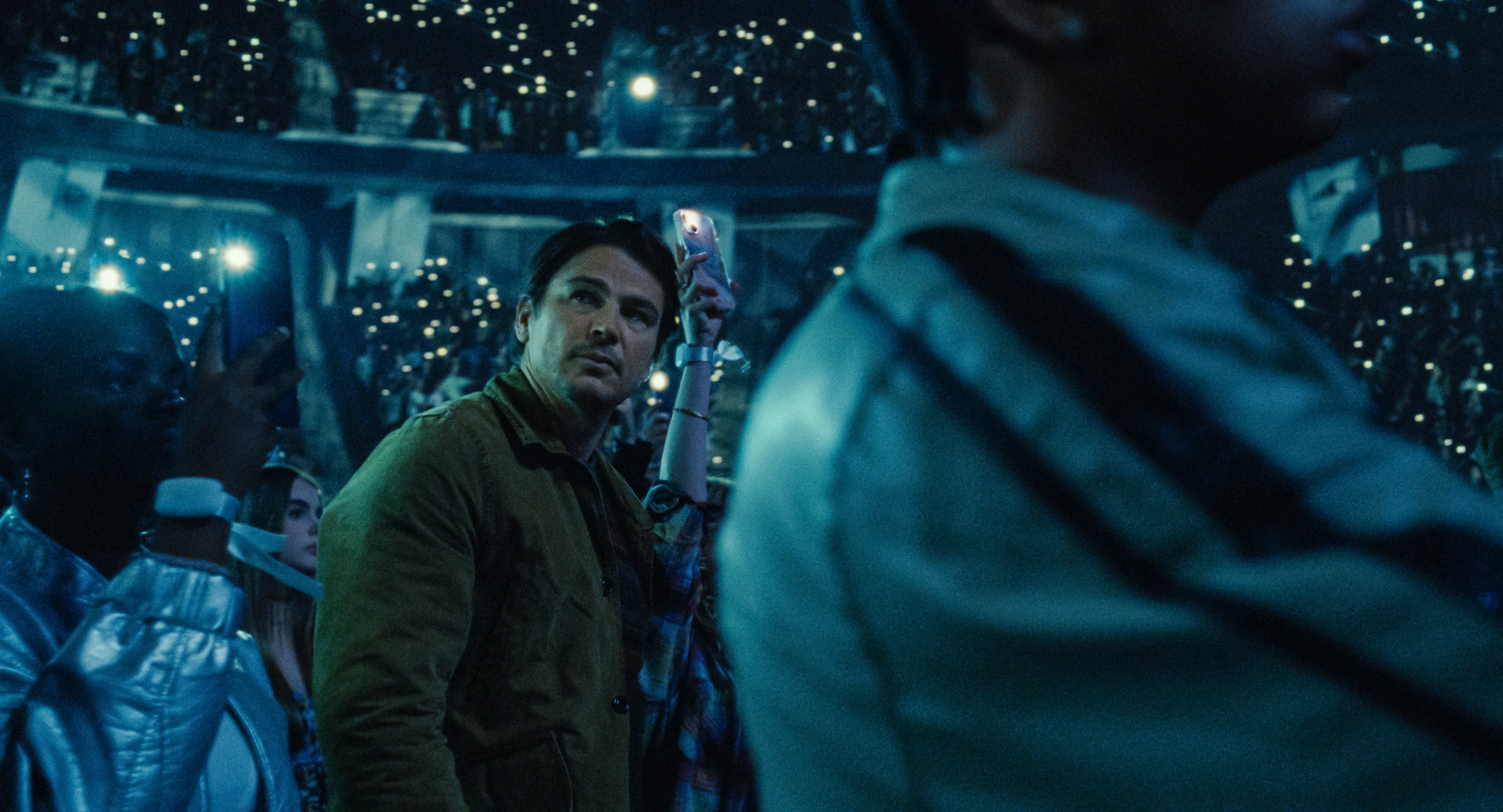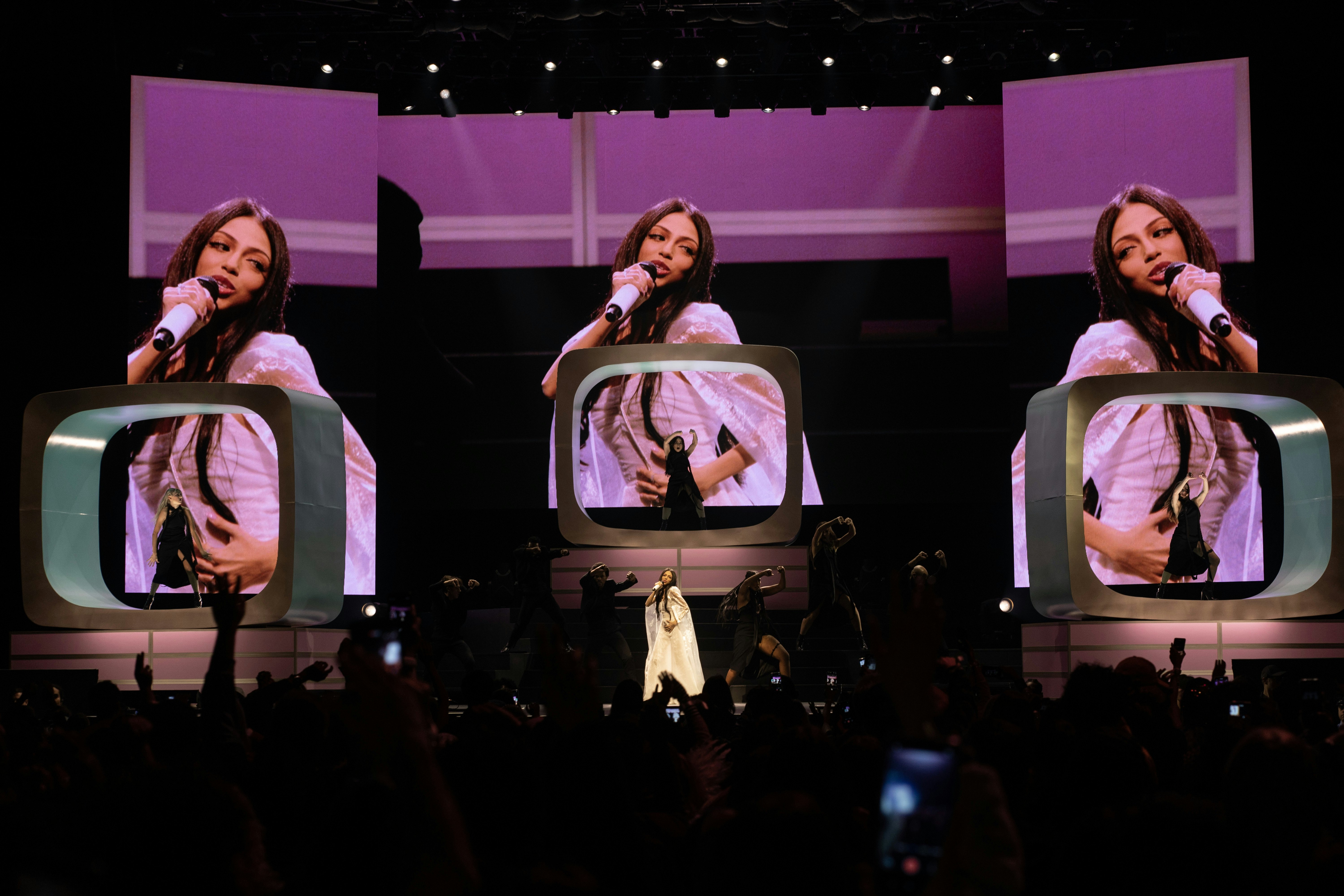
In August 2002, M. Night Shyamalan received the most unexpected death knell of his career: Newsweek declared him “The Next Spielberg.” It’s a label that’s been haunting the Sixth Sense director ever since. Worse than simply being known as the “twists guy,” Newsweek’s hollow comparison built an expectation that Shyamalan could deliver the same four-quadrant blockbuster thrills as Steven Spielberg. Instead, the director of Sixth Sense and Signs went on to embrace a kind of hokey, B-movie sensibility you’ll almost never find in a Spielberg picture. Shyamalan’s latest film, Trap, is the purest embodiment of that difference.
Like many Shyamalan movies before it, the premise of Trap is the basis of its appeal. A serial killer known as The Butcher (Josh Hartnett) attends a pop star concert with his daughter (Ariel Donoghue) only to find that it’s an elaborate trap set up by the FBI. It’s the kind of pulpy thriller that you might find on cable TV or among forgotten VOD releases that your favorite actor did in the ‘90s. When the premise is all you need to know about the movie — it’s a cat-and-mouse thriller, but you’re rooting for the cat! — you know you’re in for some simple, visceral thrills. And that’s exactly what Shyamalan delivers.

M. Night Shyamalan might have gained a reputation early on for crafting elaborate twists, but the truth is, he’s never been a very complex director. Shyamalan likes big emotions and broadly sketched characters. His characters often feel more like chess pieces than actual humans. His dialogue is clunky! But that’s exactly why the director found his perfect niche: movies with simple premises and high stakes where he can flex his keen visual sensibilities. Shyamalan is well aware of the kind of movie he’s making and he doesn’t elevate it as much as meet it on its level.
As The Butcher, aka Cooper Adams (a basic, bland name befitting the dorky performance Hartnett initially puts on), realizes what the concert really is, mundane moments take on a decidedly more sinister edge. The bright red bathroom stalls become ominously violent as Cooper secretly checks in on his latest hostage on his phone. The screams of teenage fangirls in the audience become surprising jump scares as Cooper ponders his next move. The bright lights of the arena are used to the most chilling effect of all, with cinematographer Sayombhu Mukdeeprom bathing Hartnett’s dead-eyed expressions in a giallo-like red glow.

Trap isn’t as visually elegant as Knock at the Cabin, which felt like Shyamalan reaching a new level of directorial confidence. Where the camera moved with purpose and intentionality in Knock, Trap is more conventional. Shyamalan throws in a couple of split diopters and creative bits of blocking, but at other times, film hilariously becomes an excuse for the director to show off his pop star daughter Saleka Shyamalan, who gets extended sequences to perform nearly full-length versions of her songs. It’s scenes like these, while somewhat endearing if you know the father-daughter connection, that make Trap feel like Shyamalan is operating on autopilot.
It’s good, then, that Hartnett gives such a terrifically slippery performance as Cooper, a man whose crocodile smile never betrays his inner thoughts. He seems to have a genuinely sweet relationship with his daughter Riley, who is blissfully unaware of why her dad is behaving “weird.” He appears affable to the merch-booth worker (Jonathan Langdon, the film’s comedic scene-stealer), who naively spills the police force’s entire plan to him. He’s even helpful when a young girl faints, carrying her backstage to help treat her (for the purpose of securing an exit route).
There’s a mercurial, unknowable nature to Hartnett’s performance, which feels of a piece to Tom Cruise in Collateral. The character himself is a facade that we, the audience, don’t get to know, even as we find ourselves quietly rooting for him at the beginning. Like Shyamalan’s best leading men, it’s a performance perfectly in tune with the director’s sensibilities. Cooper speaks like an awkward ‘60s automaton because he’s a psychopath masquerading as a normal suburban dad. It’s Hartnett’s superb performance (arguably a career-best for the actor who has steadily started to chart a mini renaissance for himself) that carries the film through its more absurd twists and turns.

But it would be disingenuous to call them twists. The director wisely abandons building his movie around one big plot reveal, instead letting Trap shake things up by introducing several surprising left-turns that constantly up the stakes. As the film’s initial premise threatens to run out of steam, the perspective shifts away from Cooper and towards other characters like Lady Raven (with Saleka Shyamalan impressing as the film’s unexpected final girl) and Cooper’s wife Rachel (Alison Pill, lending warmth to a somewhat unforgiving role). Trap’s almost real-time narrative keeps things interesting, as does Hartnett’s increasingly unpredictable performance.
Even on autopilot, Shyamalan manages to turn Trap into an almost nonstop exercise in white-knuckle suspense. The film constantly surprises with the speed at which the plot moves and characters come in and out. The momentum occasionally dips, but Shyamalan’s script is efficient, making the most of its 105-minute runtime.
Trap is Shyamalan offering B-movie thrills with his signature hokey sincerity, a combination that feels like it’s always been right for the director. He’s done trying to live up to his reputation as the “twist guy” or the “next Spielberg.” He’s finally climbed out of those traps.







